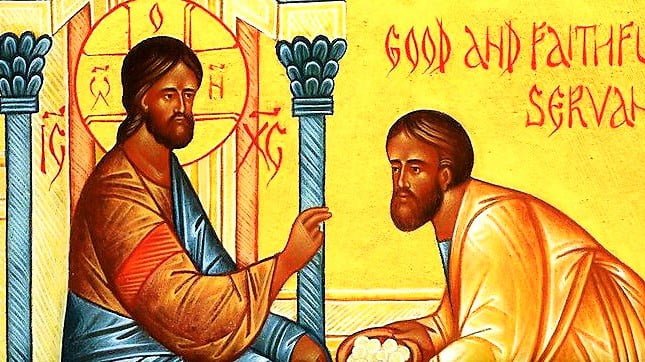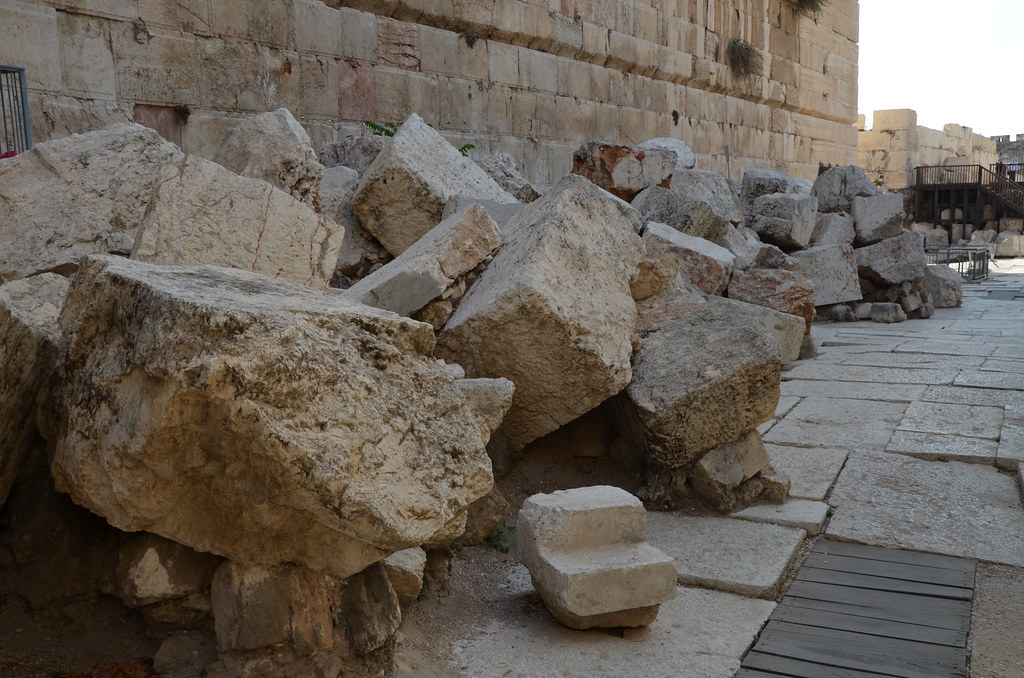Back in seminary, during the last summer before I was ordained a priest, I did my Clinical Pastoral Education at Advocate Good Samaritan Hospital in Downers Grove. It’s a level one trauma center, so it’s a busy place with a lot of, well, trauma. In C.P.E., we were placed in a group with other students, so we are all learning pastoral skills and processing pastoral experiences together. I had a very good, but challenging time in that program. I was assigned to the emergency room, along with a cardiac floor, so let’s just say it was never boring! But it wasn’t boring for any of my peers either; that summer there were an unusually large number of traumatic deaths that we each had to deal with.
During one of our prayer and reflection times, we read the last two lines of the Gospel we just heard: “Blessed are the eyes that see what you see. For I say to you, many prophets and kings desired to see what you see, but did not see it, and to hear what you hear, but did not hear it.” Our reflection was that, in the midst of all the chaos and trauma, we had indeed seen some incredible moments of grace: family reconciliations, selfless service to others in need, families coming together to support each other. Those moments were really holy ones, and blessed were our eyes indeed for having the privilege to see them.
These days, as a pastor of this little country parish, as Bishop Conlon used to like to joke with me about, there’s always something going on. What’s broken today? What’s going on in the school that needs love and attention? Which staff member is going through difficult life stuff that needs me to support them? What meeting do I have to go to or even run? What conflict needs resolving? I’m almost never bored, as I’m sure you can imagine!
I remember an evening a few years ago, after a long day of meetings that culminated with a wonderful Parish Pastoral Council meeting, I went back to the rectory and finished folding my laundry. I picked up some bed clothes, looking forward to relaxing a few minutes, finishing my prayers for the day, and going to bed. At that very moment, I got a call for an anointing. So I got in the car, and headed out, and anointed the loved one of one of our parishioners. As I was praying with them, I reflected how very grateful I was, even though exhausted, to be there. That they trusted me enough to reach out in their need was a privilege, and the opportunity to support them one of the worst days of their lives was a great grace to me. I could have been bitter that I didn’t get my moments of relaxation, but instead I was overwhelmed by the grace of the moment. I was thankful, as I always am, for being a pastor of this little country parish!
Many of you know that in the over the last few years, my mother has been ill, and sometimes declining. This year we have been having to give her 24/7 care, which was no doubt hard for her to accept, except that it was done by her loving children. She is certainly grateful that she has us to take care of her, but she felt, and to some extent probably still feels, that she is a burden. She expressed that one Sunday afternoon when we all got together to talk and lay out a plan of care. She began by saying, “I know I am a problem for you guys.” With tears in my eyes, I said, “I think I can speak for Sharon and Peggy and myself when I say that we feel so privileged to be able to walk through this time with you. Yes, it’s hard, but sometimes the hard stuff is worth it.” One day Peggy texted us in our group text, “I helped Mom take a shower today and I washed her hair. I’m so thankful I can spend this time with her.” You see, blessed are our eyes to be able to look on our mother and care for her, just as she has so often cared for us.
We could all tell similar stories. The grace is there, sometimes hidden in the craziness of life, but for eyes blessed to see it, there are moments for which to be thankful. Many of them. Every day. Because gratitude is a decision, not a feeling. We can decide to be bitter and resentful for all that life throws at us. Or we can be Eucharistic people – people of gratitude – grateful for the grace that sustains us when everything is falling apart. Grateful for the moments of blessing that are happening even in the hardest situations. Grateful for the people and the community that we get to walk with through this crazy life. Grateful for the relationship with God who gives us, always, way more than we give him, freely, unconditionally, abundantly, undeservedly.
I think we all know a little about how Thanksgiving started. We learned in school that the pilgrims gathered in the autumn of 1621 after a year in the New World. It was a year of rich harvests, and their gathering was a feast of giving thanks to God for what he had done for them. They were thankful because they had survived.
But Peter Fleck, a Unitarian minister, suggested some years ago that maybe that wasn’t it at all. Maybe what was really true was that they survived because they were thankful. Think about it, that year could not have been an easy one for them. They were in a new land, vastly different from what they had been used to. They had grown crops they weren’t used to and survived disease. After all of that harrowing experience, they were still grateful. Maybe that “attitude of gratitude” was why they survived.
As Catholics, we are a people who constantly choose to be grateful. Our Eucharist is the Thanksgiving feast par excellence. Every time we gather to celebrate Mass, we remember that God in his infinite mercy sent his only Son to be our Savior. He came into our world and walked among us, filling the earth with his most merciful presence. He journeyed among us, a man like us in all things but sin. His great love led him to bear the cross for our sake, dying the death we so richly deserved for our many sins. And then he did the greatest thing possible: he burst out of the grave, breaking the chains of death, and rose to new life. Because of this grace, we have the possibility of everlasting life with God, the life we were created for in the first place.
Every time we celebrate the Eucharist, we remember this awesome mystery. Not only that, our Eucharist brings us to the hour of that grace, giving us once again a share in its blessing. As a Eucharistic people, we Catholics are a people of gratitude. That’s what defines us.
So how would a people defined by gratitude celebrate this Thanksgiving day? Certainly we have made the best possible start: gathering for the Eucharist to give thanks for the presence of God and the grace he pours out on us. Then we take that grace to our families’ own Thanksgiving feasts and beyond. As we gather around the table today, maybe we can stop to reflect on God’s magnificent presence in our lives – in good times and in bad. And then use that gratitude to make the world an awesome place – or at least your corner of it!
Gratitude is contagious – in a good way! When we make it a constant spiritual practice to reflect on how God has blessed us, when we take the time to thank someone for something little they did that made us smile, when we show our gratitude by reaching out in service to others, others can become grateful people too. A watching world looks at us Catholics to see if we really are who we say we are. When we live as grateful people, our Eucharist is authentic and our witness is exhilarating.
Like those pilgrims at the first Thanksgiving, maybe our gratitude can become the source of our survival through the hard times and the source of our joy in the good times. Maybe we can not just survive, but actually thrive, because we are grateful people. May we never cease to sing the praise of God and to cry out in songs of thanks and praise!










You must be logged in to post a comment.